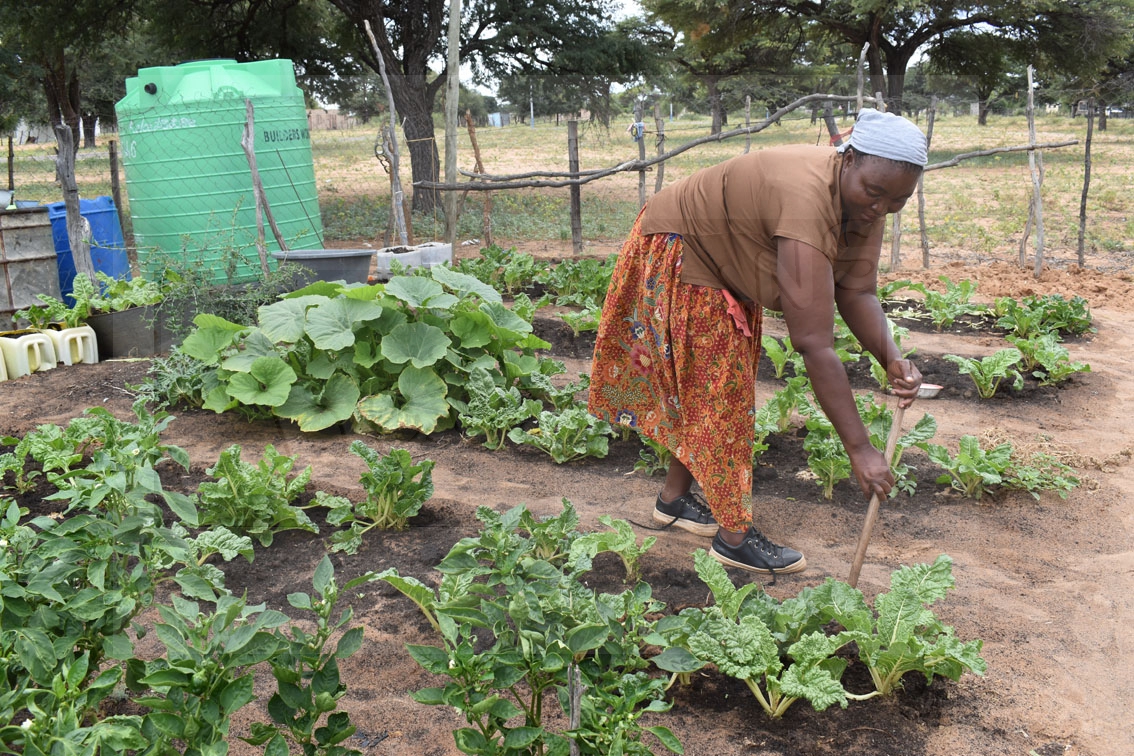Merchants reluctant on e-payments
03 Sep 2024
While the SADC region has dedicated efforts toward enhancing its electronic payment infrastructure, all endeavours have had limited success in promoting financial inclusion.
An in-depth report from Arkwright Consulting, titled SADC Region Industry Report: Progress and Challenges in Developing National Payment Infrastructure revealed.
In an interview on Monday, Arkwright Consulting Partner, Mr Francesco Burelli said though mobile money usage has surpassed payment card transactions, many merchants were still reluctant to accept electronic payments, and this resistance poses a substantial obstacle to expanding financial inclusion.
Notably, Mr Burelli said Botswana stands out in the SADC region for its high adoption of mobile money, citing that the medium-high Mobile Connectivity Index (MCI) suggested that Botswana excelled in at least two connectivity factors but does not necessarily have a high connectivity rate overall.
Despite relatively higher banking rates in the SADC compared to other African regions, he said the report indicates that 13 out of 16 countries have card penetration rates below 30 per cent.
He said Botswana stands out with card ownership rates between 30-50 per cent among adults, largely attributed to the country’s effective use of VISA’s top-tier domestic payments infrastructure –VisaNet.
In contrast, he said countries such as Democratic Republic of the Congo, Madagascar, Comoros, and four of the five countries examined in detail – Mozambique, Malawi, Zambia, and Zimbabwe – demonstrate the lowest percentages of cardholders, revealing significant variances across the region.
The adoption of mobile services in the SADC region brings both opportunities and challenges, adding that by the end of 2021, around 47 per cent of the SADC population had subscribed to mobile services, indicating a significant user base for potential growth in mobile money, he said.
He emphasized that countries like Tanzania, Zambia, Lesotho, and Eswatini have embraced mobile money due to low card penetration, demonstrating their potential to enhance financial inclusion in areas with limited traditional banking services.
Mr Burelli said countries like Angola, Namibia, and South Africa, despite high connectivity, exhibit low mobile money usage due to prevalent card payments. This highlights the importance of targeted efforts to promote mobile money as a viable alternative to card transactions, he said.
Mr Burelli said the deployment of Instant Payment Systems (IPS) poses a significant challenge within the SADC region, citing only four SADC countries are currently advancing IPS, with Tanzania and Zimbabwe having operational systems but with no transactional activity.
He reiterated that while South Africa’s Payshap and Namibia’s Nampay were operational, they experienced minimal transaction volumes.
This gradual implementation of IPS highlights the necessity for stronger infrastructure and improved project execution, he said.
Mr Burelli said the report stresses the importance of addressing operational hurdles in countries with live systems to ensure IPS can accommodate high transaction volumes.
He said the slow progress in IPS deployment was a crucial concern that must be tackled to boost the efficiency and dependability of payment systems in the SADC region.
“It is hopeful with the recent announcement by the Minister of Finance regarding the development of a domestic switch that this may be a precursor for Instant Payment Systems in Botswana,” he said. “
He added that insufficient investment in card acceptance infrastructure poses a significant challenge to electronic payment adoption in the SADC region.
According to the report, he said most Point-of-Sale (PoS) terminals lack contactless capabilities, and many switches do not facilitate e-commerce transactions, adding that this lack of infrastructure investment was especially problematic for small and micro-merchants who require innovative payment solutions like Soft PoS and e-commerce card-on-file.
He said the report emphasized that the inadequate investment in card acceptance infrastructure not only obstructs electronic payment adoption but also limits e-commerce growth potential.
To progress, Mr Burelli said, the region needed to prioritize upgrading current infrastructure.
Botswana leads by example with early adoption of digital solutions like contactless and Tap to Phone technology powered by VisaNet to further drive SME digitisation, citing limited participation by mandated domestic switches mainly involving major banks and mobile money operators.
“This limited involvement hinders competition and innovation, restricting the introduction of new payment solutions such as ApplePay and GooglePay,” he added.
He said the growth of local fintech ecosystems is also impeded, which further limits financial inclusion.
Therefore, he said, the report emphasized the need for broader participation in domestic switches to promote a competitive and innovative payment landscape.
Mr Burelli said it stressed the significance of endorsing the expansion of local fintech solutions to enhance financial inclusion and introduce innovative payment services, including addressing the lack of participation and innovation is crucial to unlock the full potential of the SADC region’s payment systems.
Mr Burelli reiterated the importance of taking a strategic approach to tackle these challenges, adding that the report highlights the necessity for increased infrastructure investments, which involve upgrading card acceptance infrastructure to support contactless transactions and e-commerce processing on PoS terminals.
Furthermore, the report recommended promoting innovative payment services like Soft PoS and e-commerce card-on-file to improve electronic payment acceptance, especially among small-scale merchants, he said.
He said it was crucial to enhance regulatory frameworks for seamless cross-border connections with strong technical and operational capacities and unified regulatory standards.
Moreover, he said targeted initiatives should be introduced to enhance financial inclusion by addressing obstacles faced by marginalized groups such as the poor, rural dwellers, women, and the elderly.
The SADC region has shown significant progress in enhancing its payment infrastructure in the last 50 years.
Yet, he said there were considerable obstacles in boosting the adoption of card and e-payments.
To overcome these challenges, regulatory bodies, financial institutions, and technology providers must collaborate to establish a strong and inclusive payment environment that promotes innovation and supports financial inclusion, he said.
Through promoting innovation, enhancing infrastructure, and strengthening regulatory frameworks, the region can maximize the capabilities of its payment systems, promoting economic growth, inclusivity, and a resilient payment ecosystem that benefits all societal groups, Mr Burelli underscored.
Arkwright is a management consulting firm offering strategy and advisory services to private corporations, investors, NGOs and start-up companies. Ends
Source : BOPA
Author : Marvin Motlhabane
Location : Gaborone
Event : Interview
Date : 03 Sep 2024






